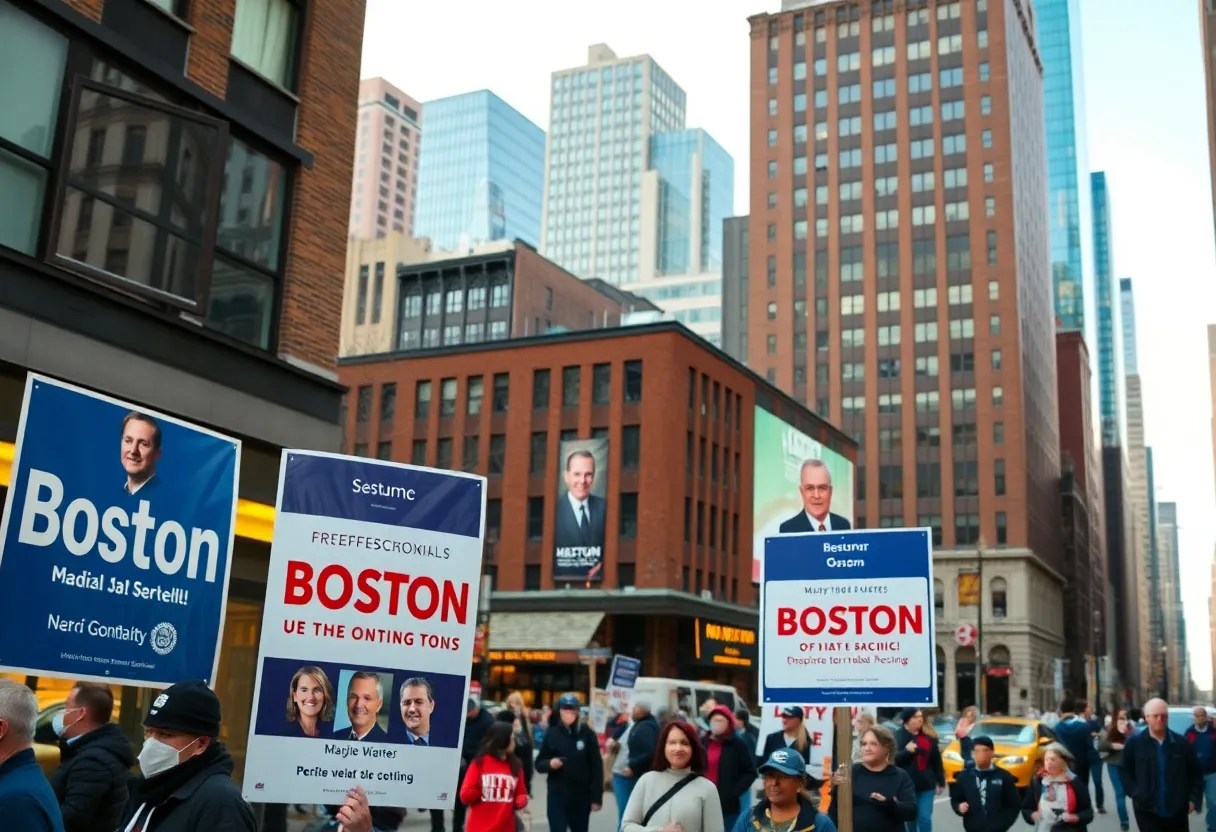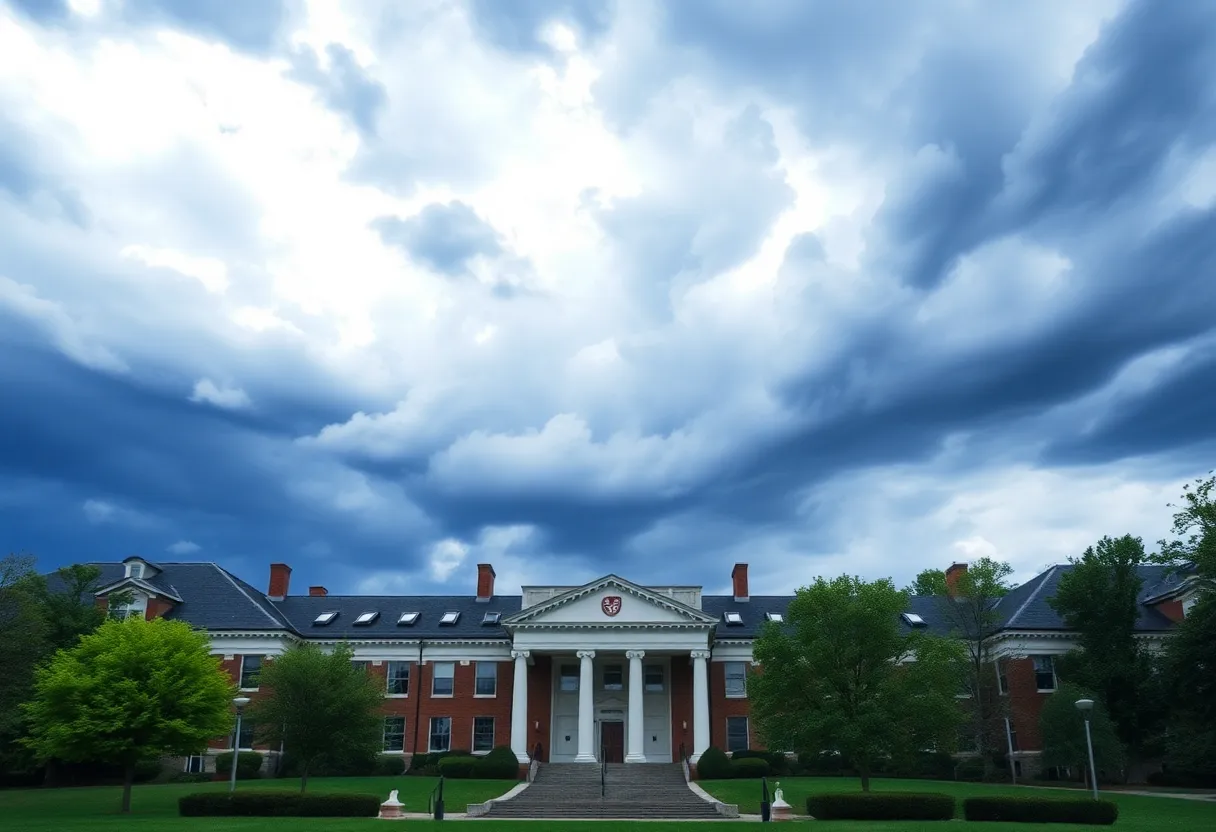News Summary
In a heated political climate, Boston mayoral candidate Josh Kraft criticizes the City Council’s push to waive a special election for the District 7 seat. This follows Tania Fernandes Anderson’s resignation amid a federal corruption plea deal. Kraft questions the inconsistency of the Council’s actions and emphasizes the importance of representation for District 7, which houses Boston’s largest Black community. As the debate intensifies, Mayor Wu’s silence on the matter raises concerns about accountability, while the upcoming election looms on the horizon.
Boston’s Mayoral Race Heats Up as Candidate Critiques City Council’s Move
Boston is buzzing with political sparring as mayoral candidate Josh Kraft takes a strong stance against the City Council’s recent efforts to waive a special election for the seat left vacant by Tania Fernandes Anderson’s resignation. This comes on the heels of Fernandes Anderson accepting a plea deal in a federal corruption case, raising eyebrows about the political maneuvering taking place.
City Council’s Controversial Proposal
The City Council, led by President Ruthzee Louijeune and Councilor Liz Breadon, has put forth a home rule petition that proposes skipping a special election if Fernandes Anderson were to resign more than 180 days before the general election. According to the city’s charter, a special election is typically necessary when a councilor leaves office.
However, Kraft is raising questions about the inconsistency in the Council’s approach to filling vacancies. During a previous situation involving the resignation of Councilor Kenzie Bok in April 2023, a special election was held, leading to the appointment of Councilor Sharon Durkan. This precedent has left many, including Kraft, wondering why District 7, home to Boston’s largest Black community, should be treated differently.
The Importance of Representation
Kraft highlights the significant impact of leaving the District 7 seat vacant, arguing that doing so is a display of underrepresentation and symbolizes larger economic challenges facing the community. He believes it’s crucial for every district to have adequate representation, especially ones deeply affected by socio-economic issues.
As the debate unfolds, Kraft has also directed his frustration toward Mayor Michelle Wu. He feels that her silence on the matter signals a lack of accountability and underscores what he describes as a “flagrant double standard” in the election processes affecting different neighborhoods.
City Council Responds
Meanwhile, Louijeune and Breadon defended their move by asserting that many community members have voiced a preference for more time to vet candidates for the upcoming election. Factors like the Elections Department being under receivership and the Secretary of State’s opposition to a special election during this period have also influenced their stance.
Concerns about disenfranchising voters have been echoed by fellow Council members Erin Murphy and Ed Flynn. They argue that waiving a special election could significantly impact the voice of constituents in Roxbury, an area disproportionately represented by District 7.
The Bigger Picture
This conversation is happening in the shadow of an upcoming mayoral election scheduled for November 4, 2025. Recent polling data from Emerson College indicates that Wu currently leads with 43% of registered voters supporting her while Kraft trails with 29%. Nearly 25% of voters remain undecided, making the race still quite open.
As both candidates prepare to address significant issues like housing affordability, public safety, and the management of the ongoing Mass. and Cass encampment crisis, their campaign strategies are beginning to take shape. Kraft has proposed a different approach to managing housing issues compared to Wu, focusing heavily on the need for rent control, a topic that’s front and center in Boston’s ongoing discussions.
Influences Ahead
The political landscape is compounded by national issues, including Wu’s recent testimony on Boston’s immigration policies at the U.S. House Oversight Committee, which has drawn attention from various political factions. The ongoing conversation surrounding federal immigration laws, coupled with local issues concerning bike lanes and public safety, will certainly shape voters’ preferences as they head to the polls.
As Boston navigates this political terrain, all eyes will be on how these topics unfold, and what decisions will ultimately be made concerning the filled Seat 7 and the broader challenges facing Boston’s diverse neighborhoods.
Deeper Dive: News & Info About This Topic
HERE Resources
Massachusetts Higher Education Faces Demographic Challenges
Boston Faces Escalating Homelessness Crisis Amid Rising Costs
Boston Theater Company Presents Dark Comedy ‘As Bees in Honey Drown’
Boston Mayor Faces Criticism Over Immigration Policies
Boston Mayor Criticizes Immigration Policies and Their Impact
Boston’s Development Dilemma: Community Fund Raises Eyebrows
Boston Mayoral Candidate Unveils Bold Plan for Opioid Crisis
Spring Brings Exciting Events to Boston
Discover the Best Times to Visit Boston: A Seasonal Guide
O’Brien Exits Mayoral Race, Shaping Boston’s Political Future
Additional Resources
- Boston Herald: Kraft Calls on Wu
- Wikipedia: Boston Mayoral Election, 2025
- NBC Boston: Wu-Kraft Poll Analysis
- Google Search: Boston mayoral election 2025
- MassLive: Wu’s Early Lead
- Encyclopedia Britannica: Political Campaign
- Dorchester Reporter: Emerson Poll Results
- Google News: Boston mayor race 2025








